Friday Notes - Building a Cabin Among our Neighbours
A review of the new children's book I Built a Cabin; book recommendations, and Friday Five - 5 examples of Indigenous leadership on climate action
Welcome! I am Jessica Hetherington, and this newsletter is about faith and climate action. You can subscribe by clicking here:
Book Review
A cabin in the woods? That is something I have always wanted; sign me up!
A cabin in the woods built by a girl? That’s my dream! Maybe we can be neighbours.
Author Sara Jewell and I aren’t neighbours, exactly; she lives in Nova Scotia, and I am here in Ontario, but I feel like we are neighbours. I first ‘met’ Sara when she signed up for this newsletter, and we began conversing about our love for the Earth, our fears about the climate crisis, and the challenges we face trying to engage people of faith in taking climate action. That dialogue, and following each other online, have led me to feel like we are neighbours, in spirit if not in body.
When her children’s book, I Built a Cabin, arrived at my local independent bookstore (Octopus Books), I was thrilled! Clearly, Sara and I dream of the same getaway and imagine one built by a little girl who is, maybe, a little like us.
I Built a Cabin, published in May 2023 by Running the Goat Books & Broadsides, is a beautifully illustrated children’s story about a girl who decides to build a cabin in the woods to get away
“far away from the cars and the crowds
far away from any neighbours”
We all know the desire, don’t we? But what she discovers is that, while she gets away from the cars and the neighbours in her city, she gains a whole other crowd, a new group of neighbours!
These neighbours have paws and wings, tails and beaks. These neighbours are noisy, and they feel like a crowd!
These neighbours, however, are the neighbours who already live in the forest where she builds her cabin; they are noisy in their own ways, different from the traffic and hustle of the city.
With illustrations lovingly created by Charlotte Manning, Sara invites us, kids and adults, alike, into the world that the girl is now immersed in. It is a world filled with the fauna of the Earth community in that forest, who munch and chomp, burp and squawk, splash and hoot! She invites us, along with the girl in the story, to experience the joy and wonder of the creatures who live in the forest, and to take a moment away with them.
I might not be able to build a cabin in the woods, but when I read this book, to myself, my kids or to kids at church, we can escape, for a time, into the wild, beautiful woods where the animals there are our neighbours, too. I invite you to escape, too. It is available for purchase wherever you like to buy your books!
Reading for Transformation
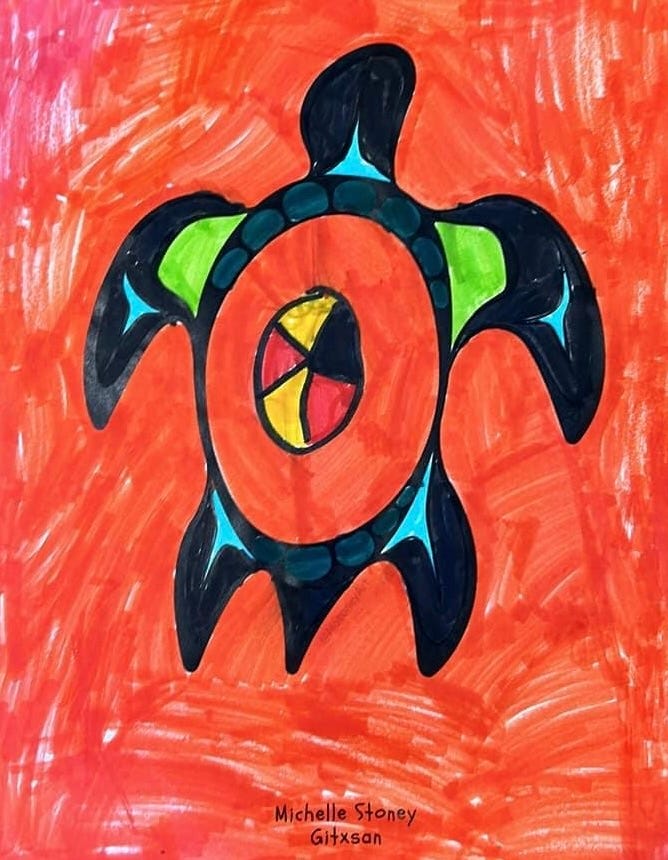
This past Wednesday was National Indigenous Peoples Day here in Canada, not coincidentally on the Summer Solstice, the longest day of the year in the northern hemisphere. I have been thinking about a wisdom that is often imparted by Indigenous traditions and leadership, which is the value and importance of place. The place and places in which we live, move and have our being; the places in which we come from, the places where we are right now, and the places we dream of moving to. And so, I offer you hear two books to consider with respect to place. One is from a Canadian Indigenous minister in the United Church of Canada; the other is from a white American writing from his place in Indiana.
The Other Side of the River: From Church Pew to Sweat Lodge (Toronto: United Church Publishing House, 2020), by Alf Dumont
In this book, Dumont, who served as an ordained minister in the United Church for 40 years, reflects on what it means to travel between the worlds of both Indigenous communities and settlers in the place that is called Canada. Using “stories, humour, poetry, and insight,” he writes about his experiences in seeking to build bridges between these two worlds, particularly concerning the haunting legacy of the residential school system here, which tore people from their places and caused generational trauma that continues today.
Staying Put: Making a Home in a Restless World (Boston: Beacon Press, 1993), by Scott Russell Sanders
I didn’t realize how old this book is until I looked it up for today! This is a book that was formative for me nearly 20 years ago when I committed to remain in place for the rest of my life. Before I met my spouse, while my oldest son was very little, I made the decision to stay in this watershed, in the Ottawa Valley where I was born and raised. This commitment, which was at once a personal, professional, and spiritual decision, was about deciding that I wanted to spend the rest of my life learning about this place in which I was formed by the Earth community. In this book, Sanders has made a similar decision and reflects upon what it has meant for him to stay, and intentionally put down roots, in the same house, on the same street, in the same city, for decades. This is a moving meditation that invites readers to consider where they are, and what it means to be there.
As mentioned, June 21 was National Indigenous Peoples Day in Canada. In recognition of that, I offer here five links to Indigenous leadership on climate action, in Canada and around the world.
Indigenous Climate Hub - An Indigenous-led national program in Canada, the Hub has been created to “provide helpful resources and information on climate change, and to provide a space to share resources, information, and impactful climate change stories from Indigenous perspectives.” First Nations, Inuit, and Métis communities and organizations are invited to contribute to their blog.
Indigenous Climate Action - “[An] Indigenous-led organization guided by a diverse group of Indigenous knowledge keepers, water protectors and land defenders from communities and regions across the country. We believe that Indigenous Peoples’ rights and knowledge systems are critical to developing solutions to the climate crisis and achieving climate justice.”
“Indigenous Environmental Projects You Should Know About” - a blog post listing Indigenous ecological initiatives across Canada.
Cultural Survival - Located in the US, this organization “advocates for Indigenous Peoples' rights and supports Indigenous communities’ self-determination, cultures and political resilience, since 1972.”
Oilwatch in Africa - “Oilwatch is a network of resistance to the impacts of fossil fuels (oil, gas and coal) industries on peoples and their environments.” While not exclusively Indigenous, Indigenous groups from across Africa are part of this resistance.


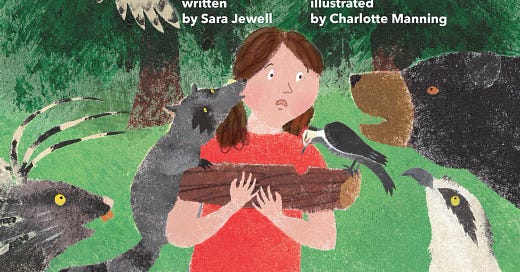



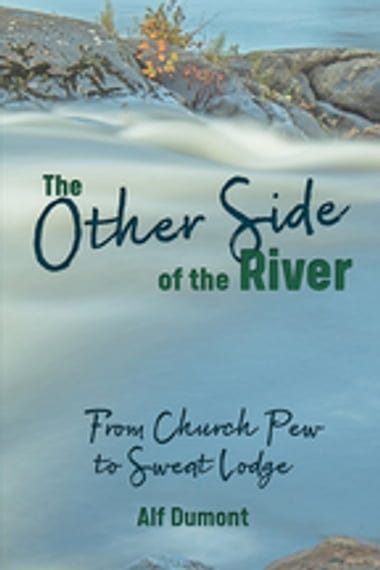
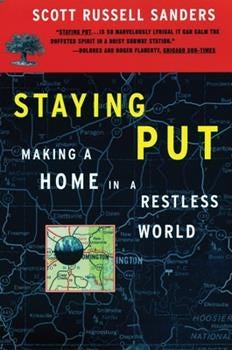
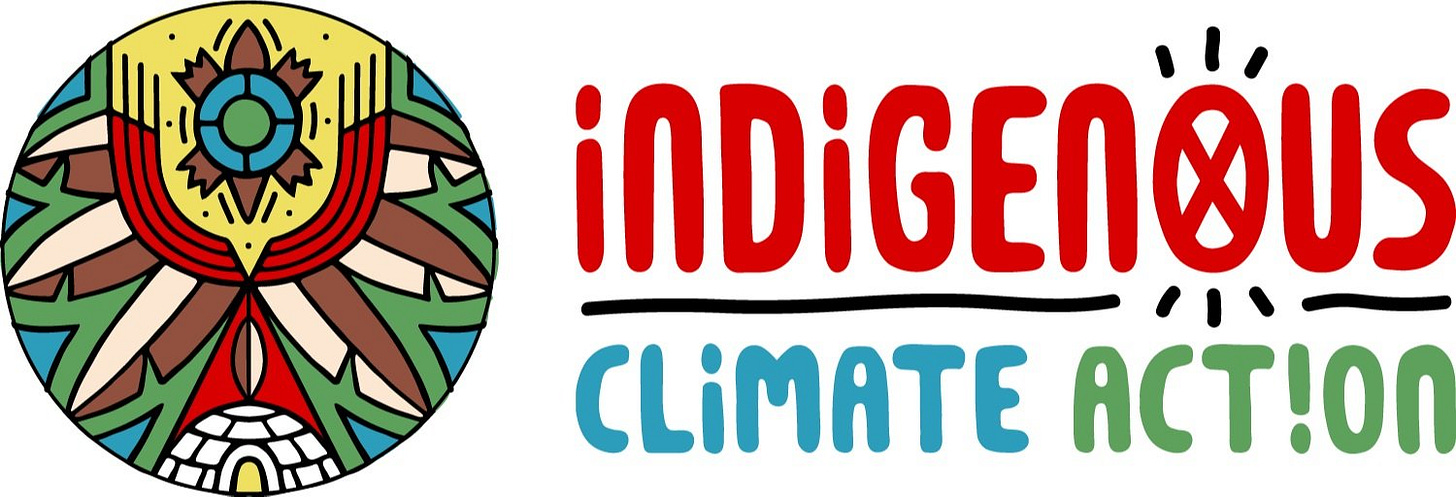
You’ve probably watched it but I recommend Kiss The Ground on Netflix. It’s about the carbon “draw down” that could happen with different agricultural practices. “Draw down” was a new term to me and one that gave me a bit of hope.